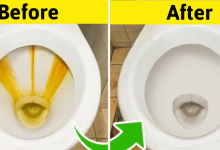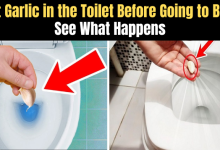When you use chemical cleaners at home, it is important that you know which ones should be stored together, and which ones to avoid mixing. Here are some cleaning products that you should not mix at all.
1. Two Types of Drain Cleaner

It is easy to assume that combining different drain cleaners can get the job done faster. Unfortunately, it doesn’t. This is because no two drain cleaners make use of the same ingredients.
2. Bleach And Glass Cleaner
The main ingredient in bleach is sodium hypochlorite – a substance that interacts with ammonia to create toxic chloramine fumes. Unfortunately, most glass cleaners feature ammonia as their main cleaning ingredient.
As a result, mixing them with bleach is an idea fraught with danger – no matter how much positive thinking suggests that this combination might double their cleaning power.
3. Hydrogen Peroxide and Vinegar

When used in small batches, this combination can be helpful in cleaning surfaces in your home. However, keeping them mixed for extended periods is not recommended because they create peracetic acid. This acid is dangerous when inhaled or can cause skin irritation when exposed to it.
4. Mildew Remover And Bleach
When combined, mildew stain remover and bleach produce chlorine vapors – a dangerous and toxic kind of gas. For example, some of the more acute symptoms of chlorine gas are redness and pain on exposed skin; eye, nose, and throat irritation; tissue damage…
5. Bleach and Ammonia

Bleach is a valuable household cleaner. This is because it can be used for different cleaning jobs. However, when mixed with ammonia, it produces chloramines which can pose a threat to your health.
Chloramine can cause difficulty in breathing and chest pains when you are exposed to it, so you should keep these two away from each other in your storage area.
6. Baking Soda and Vinegar

There have been numerous DIY videos that promote the use of baking soda and vinegar as cleaning agents. Although it is possible to use them in small amounts, leaving the mixture stored for periods of time is not recommended. This is because there will be a reaction between the two that can cause the bottle where it is stored to explode.
7. Bleach And Oven Cleaner
Mixing the bleach and Oven Cleaner together can create chlorine gas, which can cause the symptoms such as nausea and vomiting, breathing difficulties, blurred eyes…
8. Castil Soap And White Vinegar
Castile soap and white vinegar are some of the best natural cleaning products you can get. However, combining them won’t give you a net positive. Both of them have alkali and acidic, respectively. As a result, they neutralize each other’s beneficial cleaning abilities and create useless white gunk.
So that, you should consider using them one after the other – a vinegar wash should easily remove any remaining scum that is left behind by castile soap.
9. Rubbing Alcohol And Bleach

Ethanol or Isopropyl alcohol reacts with the sodium hypochlorite in bleach which results in chloroform, you know, the same stuff kidnappers use on their victims to knock them unconscious. Even in small doses, chloroform can cause nausea and dizziness as well as damage to your extremities including your skin and eyes. When inhaled it can harm your lungs, kidneys, and liver.
10. Vinegar And Water (For Certain Floor Types)
Vinegar and water is a handy, natural cleaning solution that works for most floors. However, the acidic nature of vinegar can actually damage hardwood floors, dulling their otherwise beautiful appearance. Additionally, water can also cause warping and moisture damage to your hardwood floors if you’re not careful.
11. Bleach And Dish Detergent
Ammonia is a common ingredient in dish detergents. This substance can improve the effectiveness of dish detergents but will create chloramine gas when mixed with bleach.
12. Lemon Juice And Bleach
Bleach reacts with lemon juice like it would any other cleaning product off the market and create chlorine gas.
13. Some Types Of Pesticides And Water
You might want to check the instructions on the label. Upon contact with water, some strong pesticides can create phosphine gas. This gas is colorless, flammable, and highly toxic.
Some of the effects of inhaling phosphine gas: convulsions; irregular heartbeat; coma; liver, and kidney damage…







